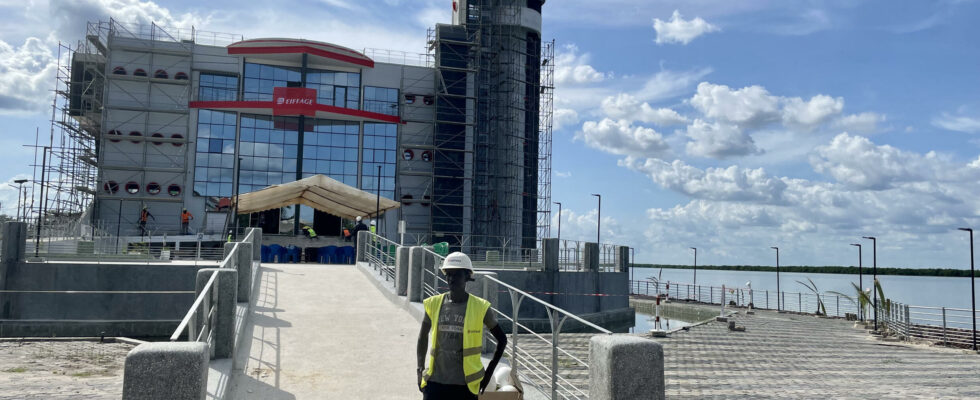This is one of the most serious disasters in the history of the civil navy. On September 26, 2024, Senegal commemorates the 22nd anniversary of the sinking of the Joola, named after the ferry that shuttled between Dakar and the south of the country and which sank off the coast of Gambia on September 26, 2002, taking with it nearly 2,000 men, women and children, most of them trapped inside its hull. A look back at a tragedy and its aftermath, more than two decades later.
4 min
With our special correspondent in Ziguinchor, Lea-Lisa Westerhoff
In Ziguinchor, in the south of Senegalthis Thursday marks the opening of the Joola Memorial Museum, a request from victims’ families for years. Very soon after the tragedy, the families of the nearly 2,000 victims and the 64 survivors requested the construction of a memorial in Dakar, the capital, and in Ziguinchor, the starting point of the Joola.
” We can forgive but we cannot forget. »
It took almost 22 years for the memorial museum to be here in Casamance. In Dakar, however, the families are still waiting.
For Malang Batchi, one of the few survivors of this terrible shipwreck, this is a first step. It is a place to learn from the pasthe emphasizes. It is also a place of contemplation, a place of reminder so that this never happens again in this country. We can forgive but we cannot forget. “.
Don’t forget: amnesia is the anguish that haunts families. Because, 22 years later, the memory of this tragedy tends to fade in the collective memory, while the Joola has an even heavier toll than the well-known sinking of the Titanic in 1912. This is also one of the reasons why families are asking for the creation of a day of remembrance, which would be celebrated every year, a bit like September 11 in the United States.
But the victims’ families and survivors are still demanding that light be shed on the responsibilities in this tragedy. Two investigation reports – one Senegalese, the other French – reported numerous failings in 2004: poor condition of the boat, excess passengers. 1,928 people were on board instead of the 580 passengers planned, more than triple the boat’s official capacity. There was also the slowness of the rescue: the shipwreck occurred at 11 p.m., but the rescue did not arrive until 9 a.m. the next day and it was fishermen who raised the alarm in the early morning.
” It is unacceptable that justice is not doing its job. »
Why all these mistakes? While there have been new authorities in power in Senegal since last April, the families are hoping for the reopening of a judicial inquiry, as explained by Lamine, who lost his father in the shipwreck when he was 9 years old. In 2003, the prosecutor closed the case without further action.he explains. And this is what is not normal. So, for us, it is unacceptable that justice does not do its job and that an accident of such nature occurs in a normal country and that no one is responsible. “.
Also readSenegal: 22 years after the sinking of the “Joola”, relatives of victims are desperate to see the remains recovered
The victims’ families are also still demanding that the ship be refloated, because of the 1,953 people of 12 nationalities who died (1,863, according to the official report), according to the association of victims’ families and survivors, less than 500 have been found.
The victims’ families’ association is therefore calling for the Joola to be refloated and for it to be exhibited at the memorial museum so that families who were unable to bury their loved ones can grieve.
The Joola lies at a depth of about fifteen metres, depending on the tides. It is therefore technically possible, according to the association of victims’ families. But this request has never been satisfied until now.
